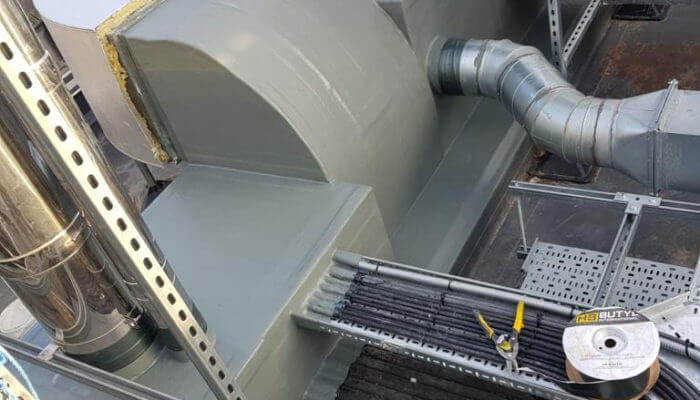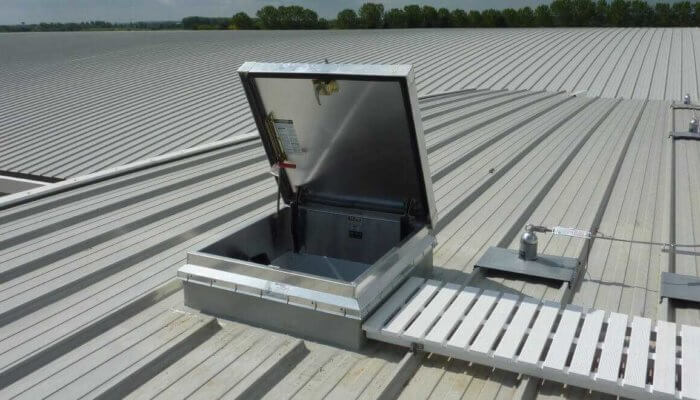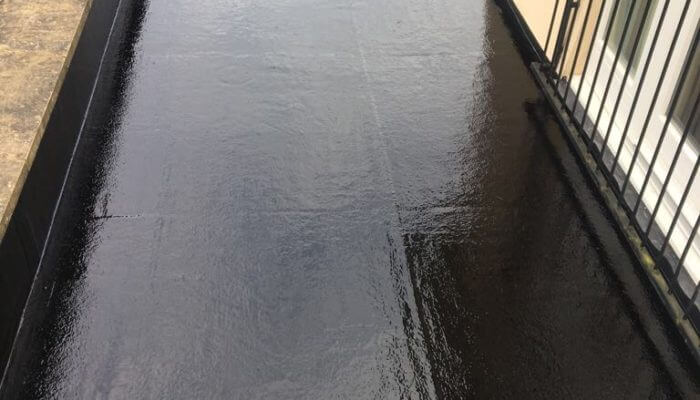The challenges construction (and weatherproofing) face in order to achieve 2050 net-zero targets are considerable. It is no longer enough to do things better; the industry needs to look at innovating and doing things altogether differently. The ‘Construction 2025 Document’ outlines the joint strategy from both government and industry for the future of UK construction through four pillars:
- 33% reduction in both the initial cost of construction and the whole life cost of assets
- 50% reduction in the overall time from inception to completion for new build and refurbished assets
- 50% reduction in green gas emissions in the built environment
- 50% reduction in the trade gap between total exports and total imports for construction materials
Modular construction offers solutions that can help achieve the targets across all pillars.
Cost of construction
Prefabrication of the most resource intensive areas of construction allows for better use of materials and better allocation of resources, and as a result is more cost-effective than traditional on-site construction.
A high level of prefabrication means that the end-to-end quality is guaranteed, mitigating risks and reducing defects in buildings. As a result, building efficiency is greatly improved providing long term savings by reducing energy demand and the need for frequent maintenance.
The implications for the lifecycle cost of the building lie in the flexibility of the modules that can be exchanged. This could be used to upgrade a plant room that is coming to end-of-life but also to change the design of the building if required. Operational maintenance and repurposing of buildings become considerably more cost-effective.
Speed of delivery
Modularisation leads to standardisation of processes which in turn lead to improved efficiency and productivity on site. As we know, the construction phase can be subject to lengthy delays caused by unpredictable events that impact the delivery schedule of projects. A high level of prefabrication shortens the less predictable construction phase and as a result, more development can be delivered on schedule.
Energy efficiency & sustainability
The increased focus on carbon reductions and primary energy targets are driving factors in modern construction. Volumetric modular buildings are designed and constructed to higher sustainability standards and are capable of far superior energy performance if the building envelope is weathertight and thermally efficient.
Use of modern materials, reduced site traffic, less waste and the possibility of building recycling reduce the embodied carbon of construction. The Current Practices and Future Potential in Modern Methods of Construction quote that overall, when comparing the energy used to construct a building, modular methods can deliver the same building using 67% less energy than the traditional method.
Import and export trade gap reduction
In the current context of Brexit, which is still causing some uncertainty, and the impact of the Covid-19 crisis across industries, it is difficult to project where the priorities will lie in the months ahead. For off-site construction to be efficient, a large-scale operation is required, and this is only possible with the support of UK government. There is a need to unite the sector, upskill the workforce and strengthen the supply chain. Department Government infrastructure strategies are expected to focus on construction with a promised increase in spending to £5.6bn. A large part of this strategy is faster project delivery, led by the newly created ‘Project Speed’. The Department for Education announced an investment of £3bn in off-site school procurement in England aiming to deliver over 30 schools in the next four years. Modular construction will undoubtedly play a central part in the UK economy.
Modular construction holds answers to many of the challenges that the construction industry faces. Weatherproofing modules off-site and on-site is one of those challenges that need to be overcome to ensure modular benefits, such as increased thermal efficiencies, are retained. Jones and Woolman UK have been involved in numerous modular projects and through 40-years of innovation are able to work with their partners to devise weatherproofing systems and streamline construction strategies. Materials, techniques and completed systems have been vigorously tested across various climates and applications to deliver a long-lasting, thermally efficient building envelope for modular buildings.
To read more on the considerations for weatherproofing of modular buildings and their benefits, download our whitepaper ‘Streamlining weatherproofing in modular construction’. Contact our team of experts for help with specification and design or any other advice on building penetrations and weatherproofing systems.


